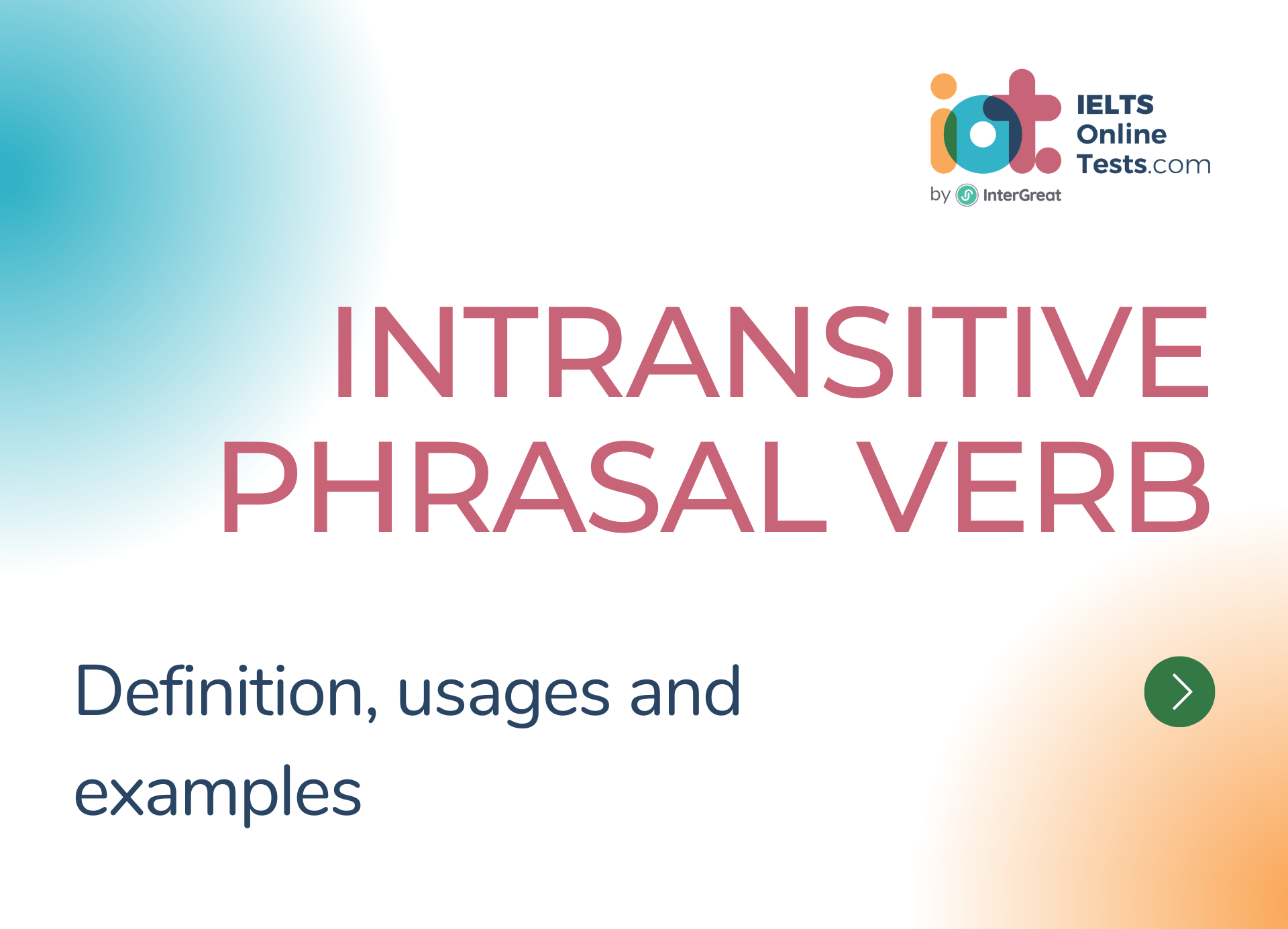
Intransitive Phrasal Verb definition, usages and examples
An intransitive phrasal verb is a combination of a verb and one or more particles (prepositions or adverbs) that does not require an object to complete its meaning. In other words, it is a phrasal verb that does not need a noun or pronoun after it to form a grammatically correct sentence.
Here are some key points about intransitive phrasal verbs:
Structure:
- An intransitive phrasal verb consists of a verb and one or more particles.
- The particle can be a preposition or an adverb.
- In contrast to transitive phrasal verbs, intransitive phrasal verbs do not take a direct object.
Examples:
- "Wake up" (verb + particle): I woke up early this morning.
- "Break down" (verb + particle): The car broke down on the highway.
- "Come in" (verb + particle): Please come in and have a seat.
- "Run out" (verb + particle): We ran out of milk, so I need to buy some more.
No Direct Object:
- Intransitive phrasal verbs do not require a direct object.
- The meaning of the phrasal verb is often understood without the need for a noun or pronoun to complete the sentence.
- Examples:
- "I woke up."
- "The car broke down."
- "Please come in."
- "We ran out."
Meaning:
- Intransitive phrasal verbs have a specific meaning that is often idiomatic or not directly deducible from the individual words.
- The addition of the particle can change or modify the meaning of the verb.
- Examples:
- "Wake up" means to stop sleeping,
- "Break down" means to stop functioning,
- "Come in" means to enter,
- "Run out" means to have no more of something.
Understanding intransitive phrasal verbs will help you grasp their meanings and use them appropriately in your English language communication. Remember that these phrasal verbs do not require a direct object, and their meanings may be idiomatic. Practice using them in sentences to become more familiar with their usage.




